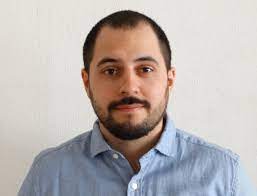
Paul Barthelemy
abbelight
France
EMBL Course
EMBL is committed to sharing research advances and sustaining scientific interaction throughout the coronavirus pandemic. We are delighted to announce that the course is going virtual and invite you to join us online.
This practical course will cover advanced light microscopy techniques and participants will learn how to derive qualitative and quantitative insights on molecular mechanisms in cells and developing organisms. Invited guest researchers together with experts from the EMBL and microscopy professionals will foster an intense information flow with a balance of lectures and practical workshops. The focus of the course will be on the use of fluorescence microscopy to obtain quantitative information about protein dynamics in living samples.
This course is directed towards researchers in the life sciences with access to light microscopy equipment, who have an immediate need to apply the techniques they will learn to solve biological problems at the cellular and molecular level in vivo.
The topics will include fluorescence microscopy techniques such as fast time-lapse microscopy, spinning disk and point-scanning confocal microscopy, photo-manipulation as a tool, multicolor single molecule localization microscopy (SMLM) with spectral demixing. For the demanding applications we will cover the aspects of image analysis and possibilities of microscope automation. The modules will cover all necessary knowledge and demonstrate tools to conduct similar pipelines at your home lab enabling you to answer emerging biological questions.
Participants will get an overview about advanced fluorescence imaging techniques.
This course is kindly supported by the EMBL Advanced Light Microscopy Facility.
This course is organised in cooperation with Olympus.

abbelight
France
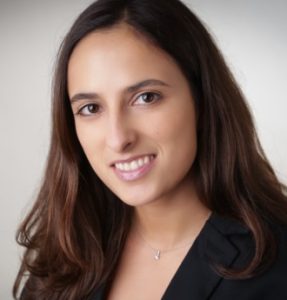
University of Zurich
Switzerland
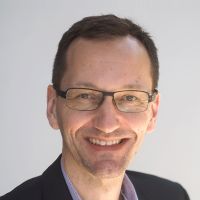
Olympus Europa SE & Co.KG
Germany
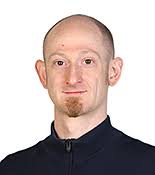
EMBL Heidelberg
Germany
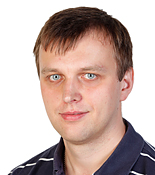
EMBL Heidelberg
Germany
University of Amsterdam
the Netherlands
EMBL Heidelberg
Germany
abbelight
France

EMBL Heidelberg
Germany
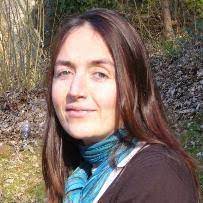
University of Paris Saclay
France
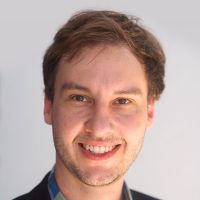
Olympus Europa SE & Co.KG
Germany
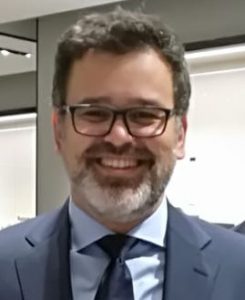
ITQB
Portugal
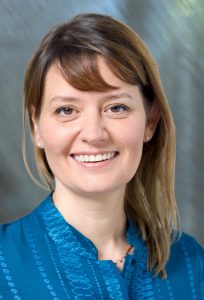
University of Zurich
Switzerland
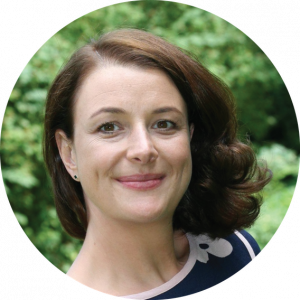
Humboldt-Universität zu Berlin
Germany

abbelight
France
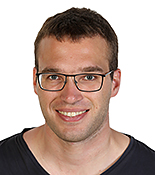
EMBL Heidelberg
Germany
EMBL Heidelberg
Germany
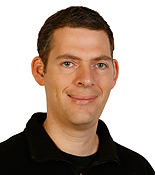
EMBL Heidelberg
Germany

Max Planck Institute of Molecular Cell Biology and Genetics
Germany
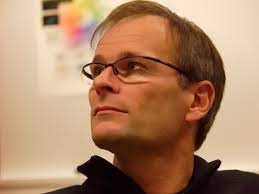
University of Zurich
Switzerland
EMBL Heidelberg
Germany
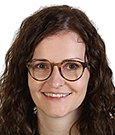
Course and Conference Officer
EMBL Heidelberg
Germany
Got something to say? Tweet it with #EMBLFluorImaging
To find out the equivalent time zone in your location, enter Berlin, the programme time and date along with your city into the Time Zone Converter.
This programme may be subject to change.
| Time | Session |
|---|---|
| 13:00-16:00 | Onboarding and technical troubleshooting |
| Time | Session |
|---|---|
| 13:00-16:00 | Onboarding and technical troubleshooting |
| Time | Session |
|---|---|
| 12:00-12:30 | Check-in |
| 12:30-13:00 | Welcome and course overview |
| 13:00-13:30 | Concepts in Light microscopy Urs Ziegler – University of Zurich, Switzerland Live talk |
| 13:30-13:45 | Q&A session: Concepts in Light microscopy Urs Ziegler – University of Zurich, Switzerland |
| 13:45-14:30 | Flash talk presentations by participants |
| 14:30-15:00 | Principles in single molecule localization microscopy Sandrine Lévêque-Fort – University of Paris Saclay, France Live talk |
| 15:00-15:15 | Q&A session: Principles in single molecule localization microscopy Sandrine Lévêque-Fort – University of Paris Saclay, France |
| 15:30-16:00 | Break |
| 16:00-19:00 | Introduction into Imaging Concepts Stefan Marawske, Heiko Gaethje – Olympus Europa SE & Co.KG, Germany Hands-on microscopy practical (Groups 3+4) |
| Time | Session |
|---|---|
| 09:00-12:00 | Introduction into Imaging Concepts Stefan Marawske, Heiko Gaethje – Olympus Europa SE & Co.KG, Germany Hands-on microscopy practical (Groups 1+2) |
| 12:00-13:00 | Break |
| 13:00-13:45 | Flash talk presentations by participants |
| 13:45-14:15 | Single phenotype transcriptomics as a platform to identify networks regulating Golgi structure Sanjana Singh – EMBL Heidelberg, Germany Live talk |
| 14:15-14:30 | Q&A session: Single phenotype transcriptomics as a platform to identify networks regulating Golgi structure Sanjana Singh – EMBL Heidelberg, Germany |
| 14:30-15:15 | Principles and applications of photomanipulation techniques (FRAP, photoactivation and others) and Adaptive feedback microscopy for high-content imaging and beyond Aliaksandr Halavatyi, Manuel Gunkel – EMBL Heidelberg, Germany Live Q&A (based on material in pre-recorded talks) |
| 15:30-16:00 | Break |
| 16:00-19:00 | Live cell imaging Joana Delgado, Urs Ziegler – University of Zurich, Switzerland (Group 3) Applying adaptive feedback microscopy for high-throughput photoactivation of specific cell phenotypes Aliaksandr Halavatyi, Manuel Gunkel – EMBL Heidelberg, Germany (Group 4) Hands-on microscopy practicals |
| Time | Session |
|---|---|
| 09:00-12:00 | Live cell imaging Joanna Delgado, Urs Ziegler – University of Zurich, Switzerland (Group 1) Applying adaptive feedback microscopy for high-throughput photoactivation of specific cell phenotypes Aliaksandr Halavatyi, Manuel Gunkel – EMBL Heidelberg, Germany (Group 2) Hands-on microscopy practicals |
| 12:00-13:00 | Break |
| 13:00-13:30 | SPIM and its applications in developmental biology Pavel Tomancak – Max Planck Institute of Molecular Cell Biology and Genetics, Germany Live talk |
| 13:30-13:45 | Q&A session: SPIM and its applications in developmental biology Pavel Tomancak – Max Planck Institute of Molecular Cell Biology and Genetics, Germany |
| 13:45-14:15 | The brain under surveillance: Neural-immune interactions in the development and repair of the CNS Francesca Peri – University of Zurich, Switzerland Live talk |
| 14:15-14:30 | Q&A session: The brain under surveillance: Neural-immune interactions in the development and repair of the CNS Francesca Peri – University of Zurich, Switzerland |
| 14:30-15:15 | DIY super-resolution: Expanding biology above diffraction Pedro Matos Pereira- ITQB, Portugal Live Q&A (based on material in pre-recorded talks) |
| 15:30-16:00 | Break |
| 16:00-19:00 | Live cell imaging Joanna Delgado, Urs Ziegler – University of Zurich, Switzerland (Group 4) Multicolor Single molecule Localization Microscopy with Spectral Demixing Paul Barthelemy – abbelight, France (Group 3) Hands on microscopy practicals |
| Time | Session |
|---|---|
| 09:00-12:00 | Live cell imaging Joanna Delgado, Urs Ziegler – University of Zurich, Switzerland (Group 2) Multicolor Single molecule Localization Microscopy with Spectral Demixing Paul Barthelemy – abbelight, France (Group 1) Hands on microscopy practicals |
| 12:00-13:00 | Break |
| 13:00-13:45 | Measuring interactions and biosensors using FRET Mark Hink – University of Amsterdam, The Netherlands Live Q&A (based on material in pre-recorded talks) |
| 13:45-14:15 | Using light to measure biophysical properties of subcellular organelles Simone Reber – Humboldt-Universität zu Berlin, Germany Live talk |
| 14:15-14:30 | Q&A session: Using light to measure biophysical properties of subcellular organelles Simone Reber – Humboldt-Universität zu Berlin, Germany |
| 14:30-15:15 | Social event |
| 15:30-16:00 | Break |
| 16:00-19:00 | Multicolor Single molecule Localization Microscopy with Spectral Demixing Paul Barthelemy – abbelight, France (Group 4) Applying adaptive feedback microscopy for high-throughput photoactivation of specific cell phenotypes Aliaksandr Halavatyi, Manuel Gunkel – EMBL Heidelberg, Germany (Group 3) Hands on microscopy practicals |
| Time | Session |
|---|---|
| 09:00-12:00 | Multicolor Single molecule Localization Microscopy with Spectral Demixing Paul Barthelemy – abbelight, France (Group 2) Applying adaptive feedback microscopy for high-throughput photoactivation of specific cell phenotypes Aliaksandr Halavatyi, Manuel Gunkel – EMBL Heidelberg, Germany (Group 1) Hands on microscopy practicals |
| 12:00-13:00 | Break |
| 13:00-15:30 | Student presentations presentation of learning outcomes by participants |
| 15:30-16:00 | Wrap up and end of course |
The course is limited to 16 participants. For selection purposes, please note that your application will not be considered without a letter of motivation.
Registration Fees (include admission and all course materials):
| Academia | 125 Euro |
| PhD Student | 125 Euro |
| Industry | 520 Euro |
The registration fee should be paid only after acceptance to the course. The results will be announced approximately 2-3 weeks after the application deadline.
After you have logged in and successfully registered, you will receive an email asking you to submit your motivation letter. Click on the link provided and enter your motivation letter in the text box provided. Alternatively you can submit your motivation letter by clicking on the link on the confirmation page directly after registering.
Instructions
Please note:
Motivation letter length: The maximum limit of 2000 characters (ca. 200 words) refers to manually typed text (spaces included).
Free field text length: The maximum characters for your answers in the free field text boxes is 255 (spaces included).Text only: If you copy-paste the text, hidden formatting might still be included and you will be informed that your text exceeds the character limit. We recommend either:
Symbols: If you have special symbols in your text make sure you are using Unicode characters, otherwise these will not be recognised by the tool.
For further information about registration and motivation letter submission please refer to the FAQ page.
Registration Fee Waivers
All academic and student registrants are invited to apply for a registration fee waiver, provided by the EMBL Advanced Training Centre Corporate Partnership Programme and EMBO. The registration fee waiver covers the registration sum that you have paid to attend the meeting. Conference participants are not required to pre-pay the registration fee to be selected for a fee waiver for a virtual meeting. If you have already paid the registration fee and are awarded a fee waiver, it will be reimbursed after the meeting. Course participants are required to pay the course fee in advance, which will then be reimbursed after the recipient has attended the course.
For participants and speakers with childcare responsibilities there is the possibility to apply for a grant, provided by the EMBL Advanced Training Centre Corporate Partnership Programme and EMBO, to offset childcare costs incurred when participating at a virtual event. Eligible costs include fees for a babysitter or childcare facility or travel costs for a care giver. Please note that priority will be given to early stage researchers. Costs will be reimbursed after the meeting only once a reimbursement form and original receipts have been received. Attendance at the event is required in order to be eligible to receive the reimbursement. In order to apply for this grant, you must be registered by the abstract submission deadline.
Applies to selected courses only. Availability will be indicated during the abstract or motivation letter submission process.
This grant covers costs related to your attendance to the course (registration, travel and accommodation costs). The grant is restricted to PhD students and postdocs who conduct basic biomedical research.
Whether you are eligible to apply for a travel grant, depends on when you received your university entrance qualification (e.g. Abitur, A-Levels, High School Diploma, Final State Examination):
– for PhD and MD students, as well as graduates, the university entrance qualification must not have been obtained more than 11 years ago at the time of the envisaged course
– for postdocs, the university entrance qualification must not have been obtained more than 13 years ago at the time of the envisaged course
Applications for financial assistance can be submitted via the submission portal* (for the submission of abstracts for conferences or the submission of motivation letters for courses) by completing the Financial Assistance Application Section (underneath the section for entering abstract/motivation letter information). The link to the portal can be found in the registration confirmation email that you will receive after registering for the conference or course.
For conferences, if you are not submitting an abstract, you can still apply for financial assistance in the submission portal. Read the instructions on how to apply for financial assistance.
Note that priority will be given to those submitting an abstract to present at the conference. In your application you will be asked to answer questions regarding your motivation for applying, and, for registration fee waivers, the reasons why your lab cannot fund your attendance and how your attendance will make a difference to your career. Application for financial support will not affect the outcome of your registration application.
*For some events, applications for Childcare Grants will still be done by email. Information about the grant will be sent out shortly after the abstract/motivation letter deadline. Please contact the event Conference Officer if you have any questions.
The scientific organisers will select the recipients of registration fee waivers during the abstract selection process for conferences and the participant selection process for courses. Results will be announced approximately 3 – 4 weeks before the event start date. Selection results do not impact your admission to the meeting. Registration fee waiver selection is based on your current work or study location, your motivation for applying, the reasons for needing financial support and the impact this event will have on your career. Childcare grants are allocated based on career stage, with priority given to early stage researchers.
Check out this list of external funding opportunities or get more information on attending the conference as an event reporter.
For further information about financial assistance please refer to the FAQ page.
Please do:
Please don’t:
Additional information can be found in our Code of Conduct.
It is important to stay healthy and move around, especially when you are attending an event virtually. We have put together a few coffee break stretches and yoga videos on the event platform for you to enjoy during the event.
Questions during and after the talks can be asked in live streaming platform. The chair moderates the questions and shares them with the speaker. If time runs out or you think of a question later, you can use the EMBL eCampus forum to ask your questions in the dedicated session channels or via direct message.
The programme is planned based on Central European Time (Berlin, Amsterdam, Paris), unless otherwise stated. As many virtual participants are attending from around the world, we do our best to accomodate as many timezones as possible when creating the programme. Please take your time zone into consideration when planning your attendance.
During the course practicals we aim to broadcast the microscope software having many graphical elements. Therefore following minimum hardware setup is recommended:
Client computer with fast and stable internet access for the live virtual sessions:
The EMBL eCampus learning platform will be used to collaborate, communicate and network with all of the course participants. All participants will receive information on how to join shortly before the course. We recommend using Chrome, Safari or Mozilla Firefox browsers for eCampus.
Zoom and other VC packages will be used for the live talks, discussions and virtual practicals. More information will be provided closer to the start of the course.
While using the software during the course, please make sure you have nothing else using your bandwidth. We recommend using a wired connection.
This course is organised in cooperation with Olympus.


Date: 23 - 27 Aug 2021
Location: Virtual
Deadline(s):
Application: Closed
Organisers:
Contact: Elisabeth Wintersteller